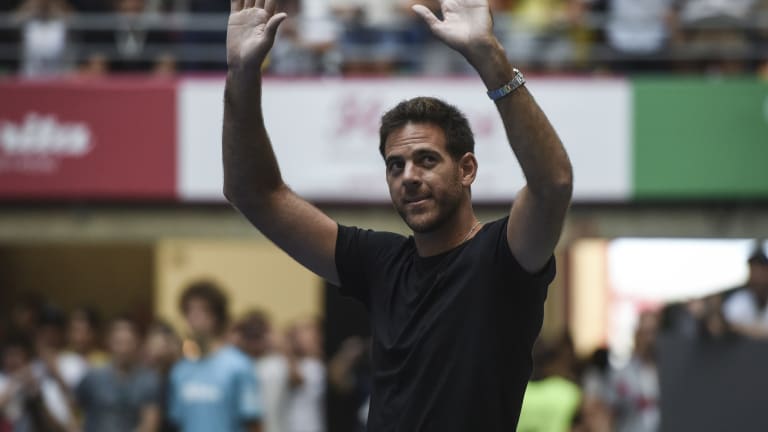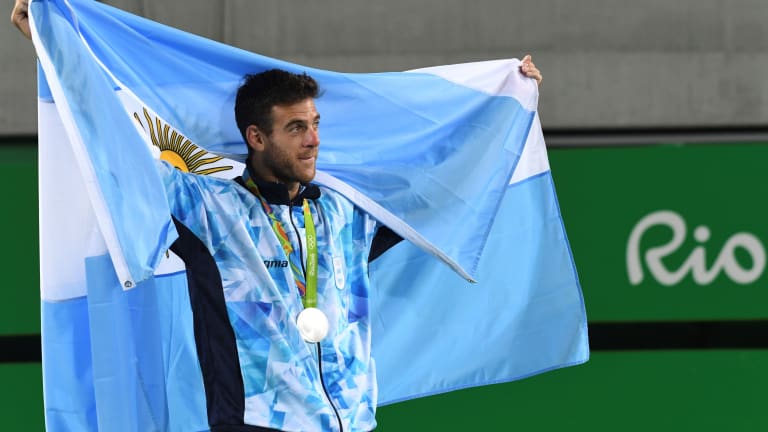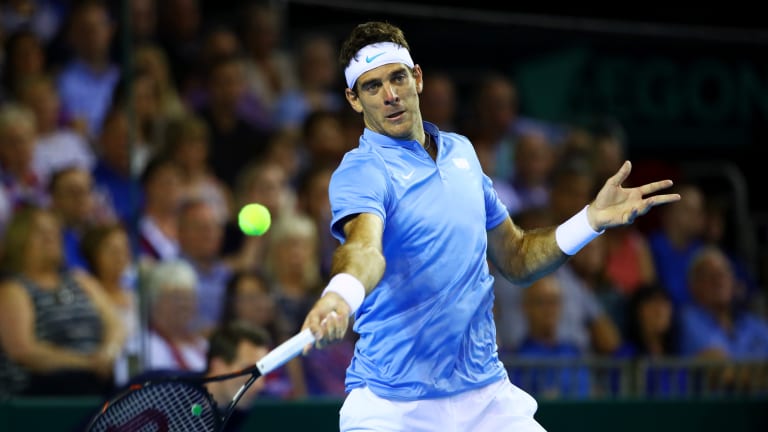Pain, redemption marked gentle giant Juan Martin del Potro’s tennis journey
By Feb 09, 2022Miami, USA
Novak Djokovic lights up Miami Open as Serena Williams, Juan Martin del Potro watch on
By Mar 26, 2025Social
'Everyone loves him': Juan Martin del Potro beats Novak Djokovic in emotional farewell exhibition
By Dec 02, 2024Social
Juan Martin del Potro opens up on injury anguish: 'A never-ending nightmare'
By Nov 27, 2024Lifestyle
Juan Martin del Potro set for "dream" clash with Novak Djokovic in Argentina
By Sep 13, 2024Social
From McEnroe to Alcaraz, Tennis legends headline Stars of the Open event on Arthur Ashe Stadium
By Aug 22, 2024Indian Wells, USA
Top 5 Indian Wells Finals, No. 2: Rafael Nadal d. Juan Martin del Potro, 2013
By Mar 17, 2024Facts & Stats
Jannik Sinner becomes first man since Lleyton Hewitt to win debut event as Grand Slam champ
By Feb 18, 2024Tennis.com Interview
The Tennis Conversation: Juan Martin del Potro on not giving up, Messi in Miami, tequila and Carlitos
By Aug 21, 2023US Open
Juan Martin del Potro’s US Open farewell plans derailed by injury setback
By Aug 16, 2023Pain, redemption marked gentle giant Juan Martin del Potro’s tennis journey
The 33-year-old, oft-injured power player from Argentina won the US Open in 2009, but never reached those same heights again—though it wasn't for a lack of trying.
Published Feb 09, 2022
Advertising
Advertising
Advertising

Del Potro's last ATP tournament prior to this year came in June 2019, on grass at Queen's Club in London.
© Getty Images
Advertising

Playing for Argentina often brought out the best in del Potro. He won bronze and silver medals at Olympic Games, and helped his nation end a Davis Cup drought in dramatic fahsion.
© AFP via Getty Images
Advertising

On its best day, there may have been no shot in tennis more devastating—even ahead of what the Big Three can unleash—than del Potro's supersonic forehand.
© 2016 Getty Images